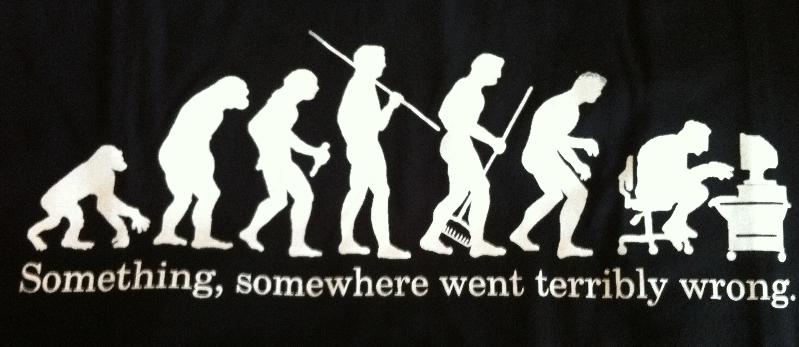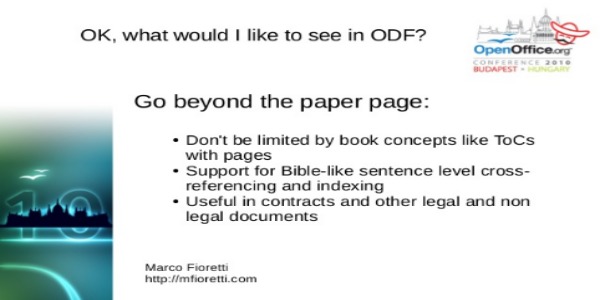Word processing, we are doing it SO WRONG
Why can’t we all be just as advanced as the Bible?
I recently pointed out, from a different, much more serious angle, that, society-wise, the advent of digital technologies has been so instantaneous that the human species has not even started to evolve to a level where it can use them properly.

A daily reminder of this reality is our continued usage of computers, and “software for writing” in general, as nothing more than glorified medieval printing presses.
Two big parts of this evolutionary backwardness afflict countless PhD theses, literary contexts, terms of services, textbooks and many other of the most important documents of our culture. Luckily (in theory) they are as easy to see, as they would be easy to fix. Please demand that everybody does it.
Pages, font sizes and other vestigial organs of text
Several times a year, my work consists of writing paper abstracts, or funding proposals that answer some public call. Now as in my high-school days, those tasks are harder than they should, because of formatting requirements still stuck in the (early!) Middle Ages. Consider these excerpts from a real call for proposals issued this year:
- The project proposal should be no more than 8 pages
- Use the Arial font. Other fonts are allowed if [they are not tricks to] significantly shorten the number of pages
- Use a font size of at least 11 points
- Use standard character spacing and a minimum of single line spacing
- Set page size to A4, with margins of at least 25 mm
Every time I see guidelines like these, I am tempted to submit a proposal like this:

Less than 8 pages, font bigger than 11 points, page size and margin OK… And all I had to do to comply was to set the font size to 100!
Guidelines like those are more obstacles than aids to communication, in an age of digital publishing, with digital tools, on zoomable screens of every size and form factor. Don’t get me wrong, constraints are necessary! Just refuse backward ones like pages, or margins and font sizes! It is much more consistant, logical, easy to respect and, above all: immensely lighter on one’s creative processes to just say:
“We will automatically reformat your text as we like, and that’s none of your business. All you must do is to fill this standard Table of Contents, while keeping the total length of your text between 1000 and 1500 characters."
Of course, in practice, other requirements would often be needed, and absolutely justified, e.g. length of the abstract, number and caption of figures or tables, footnotes and so on. But nothing more.
Problem 2: nobody learns from the Bible
Can you reference any specific part of any long written text, for example a novel, efficiently? That is, quickly, without any ambiguity, and without actually copying that text? Whatever that text is?
No, of course. You can’t just ask “what do you think of those four sentences just in the middle of Page 98 of The Lord of the Rings”! As a minimum, you should also specify the printed edition where those four sentences happen in the exact middle of Page 98. Then, if you care at all to have answers, you should give equivalent directions for every edition of that novel, in every language. And that would still leave in the dark everybody reading any e-book version of the novel.
Why? Because we refuse to learn from the Bible, as I first said more than ten years ago (slides here):

“The middle of Page 98” means nothing. But say “John 8:32”, and everybody in the world will know, or find in seconds,
“And you will know the truth, and the truth will set you free”
Everybody, wherever they live and whatever language they read. Including time travelers from centuries ago. Because we know how to properly reference text since at least 1560, when the Geneva Bible first appeared with numbers both on chapters and verses:

Whatever your position on religion is, it is hard to deny this technological superiority of the Bible over the tender calls, insurance contracts and policies written with digital word processors these days. It’s too bad that there is not enough demand for it.
Who writes this, why, and how to help
I am Marco Fioretti, tech writer and aspiring polymath doing human-digital research and popularization.
I do it because YOUR civil rights and the quality of YOUR life depend every year more on how software is used AROUND you.
To this end, I have already shared more than a million words on this blog, without any paywall or user tracking, and am sharing the next million through a newsletter, also without any paywall.
The more direct support I get, the more I can continue to inform for free parents, teachers, decision makers, and everybody else who should know more stuff like this. You can support me with paid subscriptions to my newsletter, donations via PayPal (mfioretti@nexaima.net) or LiberaPay, or in any of the other ways listed here.THANKS for your support!